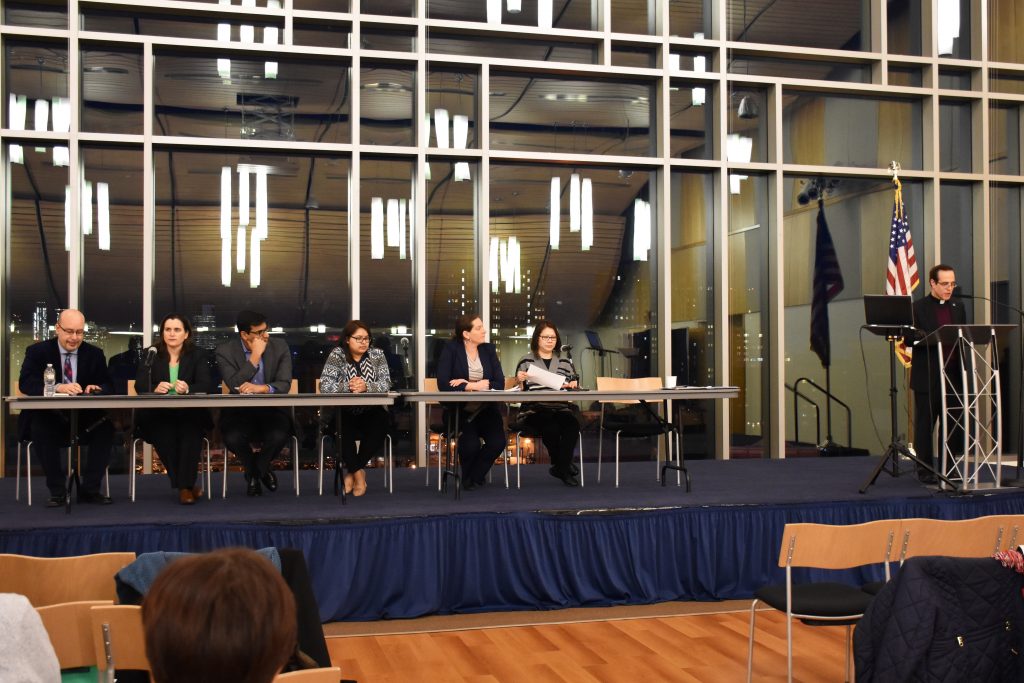On March 13, 2013, Jorge Mario Bergoglio became the 266th Pope of the Catholic Church. He chose the name Francis and was the first Jesuit and first non- European Pope. As a Jesuit University, Saint Peter’s finds tremendous pride in Pope Francis and his impact on the church has had a ripple effect through the Catholic community. His progressive attitude and loving nature has grown the church and strengthened the faith of current members. Recently, an event was held on campus in The Duncan Family Sky Room to celebrate, reflect and discuss the past five years of the Papacy.
As part of the program, a video created by Paulo Tiról, assistant director of music for St. Aedan’s: The Saint Peter’s University Church, highlighted the Pope’s jovial nature, showing him hugging people and letting them touch him, especially children. What sets him apart from other popes is his interaction with others; he frequently invites people onto the “Pope Mobile” and at his inauguration, he asked the audience to bless him. He also lives a simple life; he does not live in the papal palace, he wears simple clothes and old shoes and he drives his own old car. His ability to resonate with members of the Catholic Church, especially those of a younger generation, can be seen in his description as a “cool pope.” He was voted the 2013 person of the year by TIME and named one of the most influential people on Twitter, posting numerous inspiring messages in many different languages. Follow him here.
At the event, Carmel Galasso ’79 gave the opening address, “These five years have been those of mercy, joy and hope. Pope Francis has the ability to open minds and he caught the minds of the younger generation. He has left his mark on the church and will continue to do so.”
Rev. Rocco Danzi, S.J., vice president for mission and ministry, stressed the impact Pope Francis has had by stating, “He feels Christ through the people who surround him. In addition, what makes him powerful is that he has encouraged the church to be more welcoming and to bring all into the church community, reminding us that the church must be relevant to all.”
Fr. Danzi explained that Pope Francis is revolutionary because he is more open, more welcoming and more tolerant than the church of the past. He also celebrates youth as part of the church.
“He is a man of gestures. Welcoming people to himself with his hands, with his smile and with his outstretched arms,” said Fr. Danzi.
Others from the church community here have felt the impact of Pope Francis’ leadership. Two St. Aedan’s: The Saint Peter’s University Church parishioners Devanjn and Brigid D’Sousa spoke at the event. Brigid expressed her commitment to a social justice mission that she embraces at St. Aedan’s that Pope Francis solidifies. Devanjn expressed his pride in being Catholic.
“Faith is immersive and the Pope shows that,” said Brigid.
“Pope Francis makes me proud,” said Devanjn. “He is a leader who lives his faith.”
Having a strong leader is important to our society now. A senior at Saint Peter’s University, Aitana Liberos ’18, shared her thoughts on the Papacy, “We look toward world leaders during turbulent times for a way to respond. And I think that Pope Francis gives us an excellent mirror for a way to respond,” she said. “If you call yourself a person of faith, then you are a person of justice. The Pope speaks to a way to connect faith and justice,” she added.
Edgar Rivera Colón, Ph.D., assistant professor of sociology and urban studies, reasoned that Pope Francis is an effective world leader because he is a pope of globalization. In Dr. Colón’s speech, he pointed out that Laudato si’, a document about climate justice will be important for historians moving forward.
“The Pope brings up a world message that sums up some of the contradictions and possibilities in our time. Pope Francis brings up topics that discuss what it means to be free and how we can embrace the ‘common good’ and he embodies a type of freedom that people find attractive,” said Dr. Colón.
Mary Kate Naatus, Ph.D., chair of the business administration department and interim KPMG dean of the School of Business, spoke about raising her three children in the current political climate, and what it means to have a well-informed leader.
“Saint Peter’s is integrated into the community the way Pope Francis takes his mission to the streets, we take our students to the streets, where they learn from the community and gain real-world experience. When he changed the message of the church to one of love and inclusion, I felt more comfortable in my Catholic skin,” said Dr. Naatus.
Others on the panel were personally touched by Pope Francis’ actions. Jocelyn Villanueva, St. Aedan’s: The Saint Peter’s University Church administrative assistant, shared a story from when the Pope came to visit her hometown in the Philippines after a natural disaster. She spoke about what this visit meant to her and what she learned from the Pope.
“The Pope is very popular because he is different,” Villanueva said. “In his five years of Papacy, Pope Francis has shown us how to be like him. He taught us how to be humble and how to act with mercy and compassion; according to him a little bit of mercy makes the world less cold and more just; he showed us how to forgive.”
-
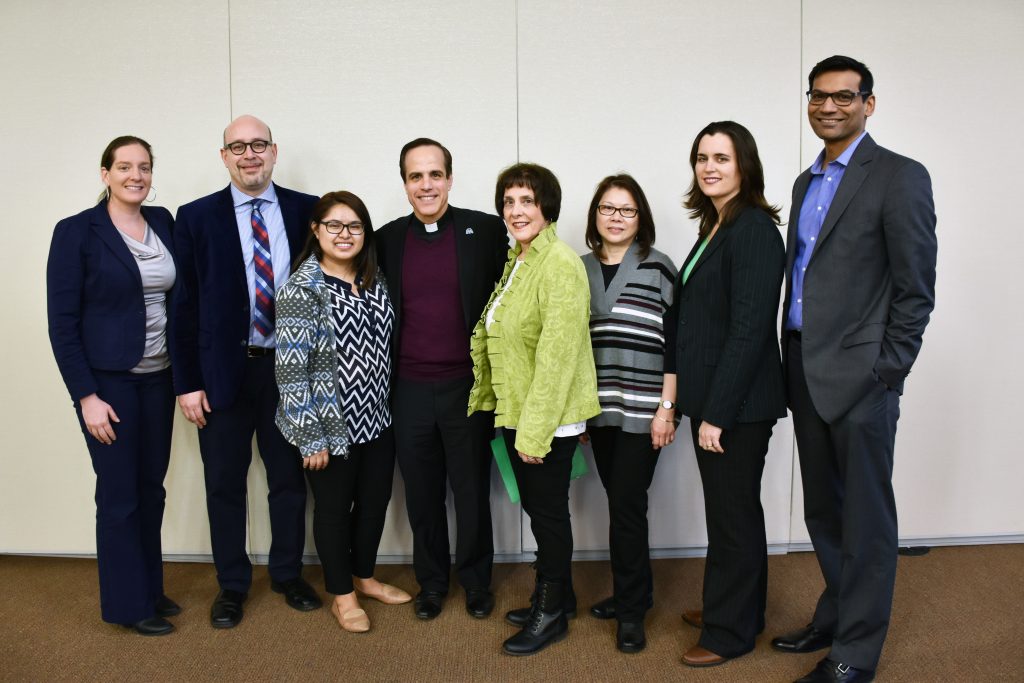
- Panelists from left: Edgar Rivera Colon, Ph.D., Aitana Liberos ’18, Rev. Rocco Danzi, S.J., Carmel Galasso ’79, Jocelyn Villanueva, Brigid D’Sousa and Devanjn D’Sousa
-
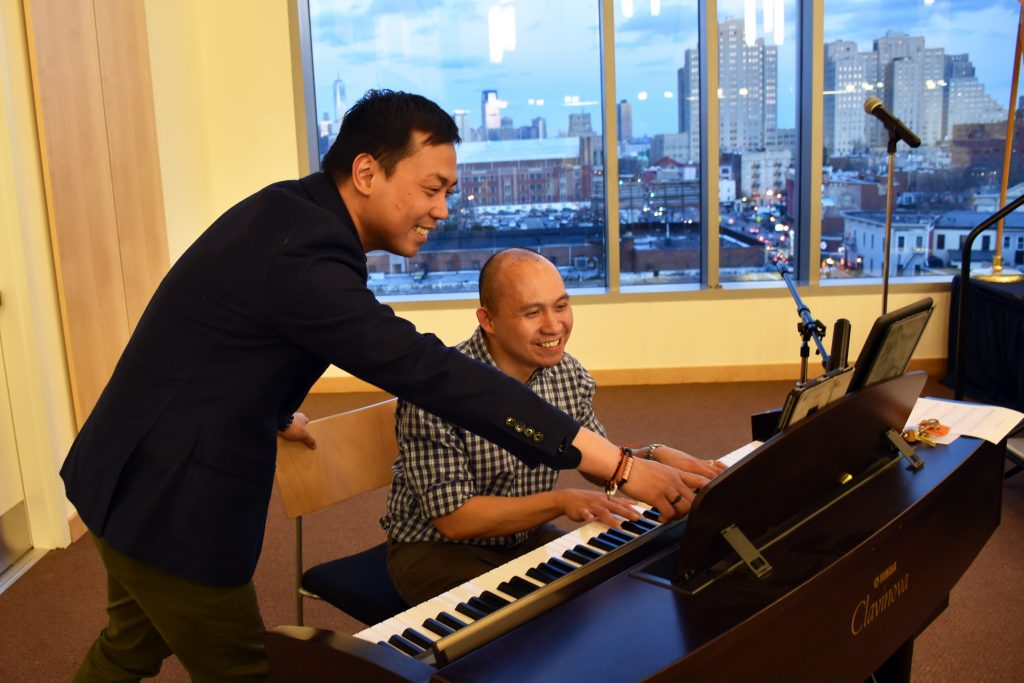
- Joseph Legaspi, D.M., and Paulo Tirol
-
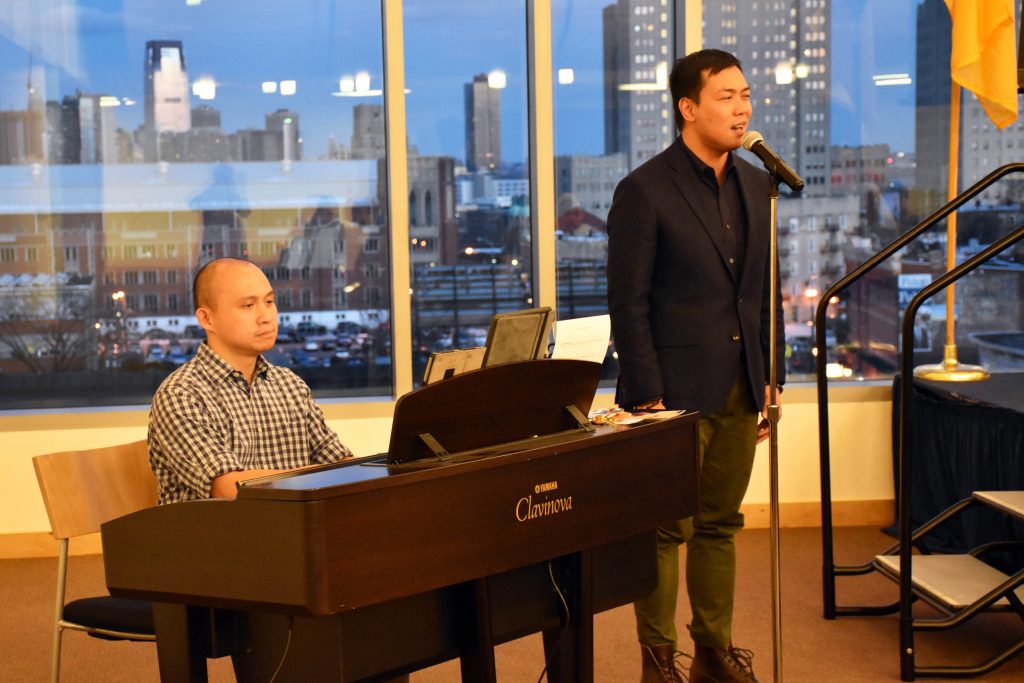
- Joseph Legaspi, D.M., and Paulo Tirol
-
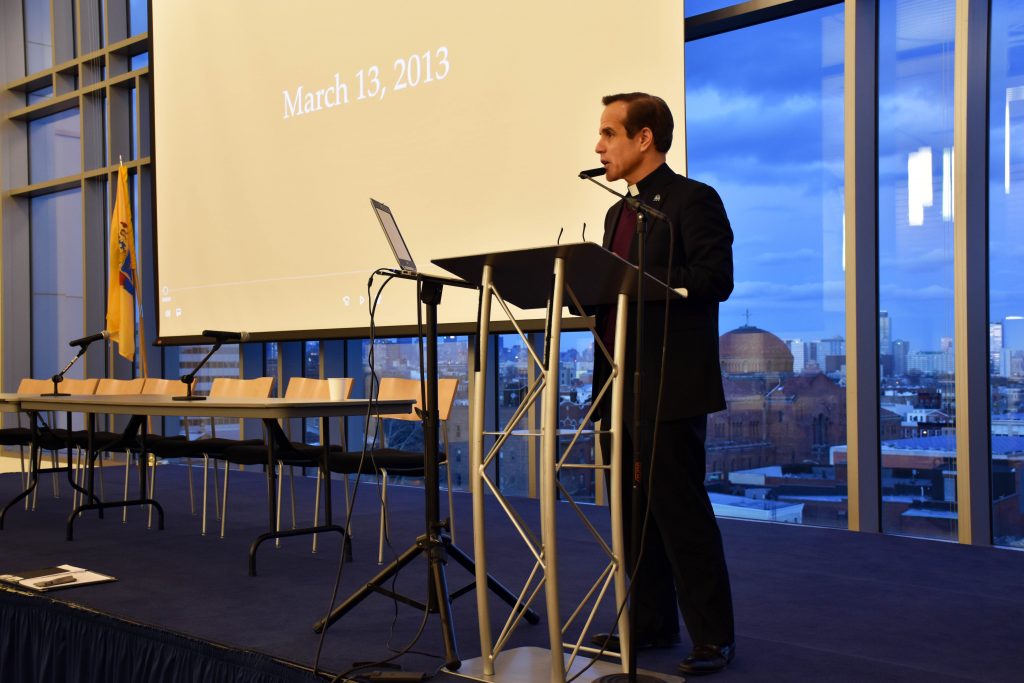
- Rev. Rocco Danzi, S.J.
-
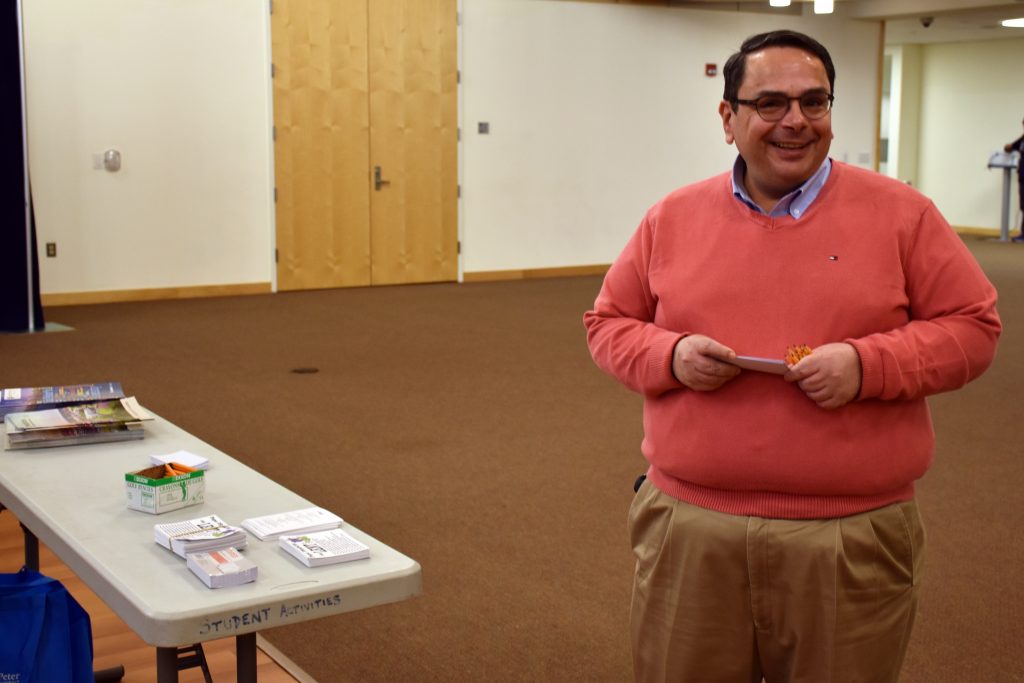
- Claudio Burgaleta, S.J., Ph.D., Rector of the Saint Peter’s University Jesuit Community
-
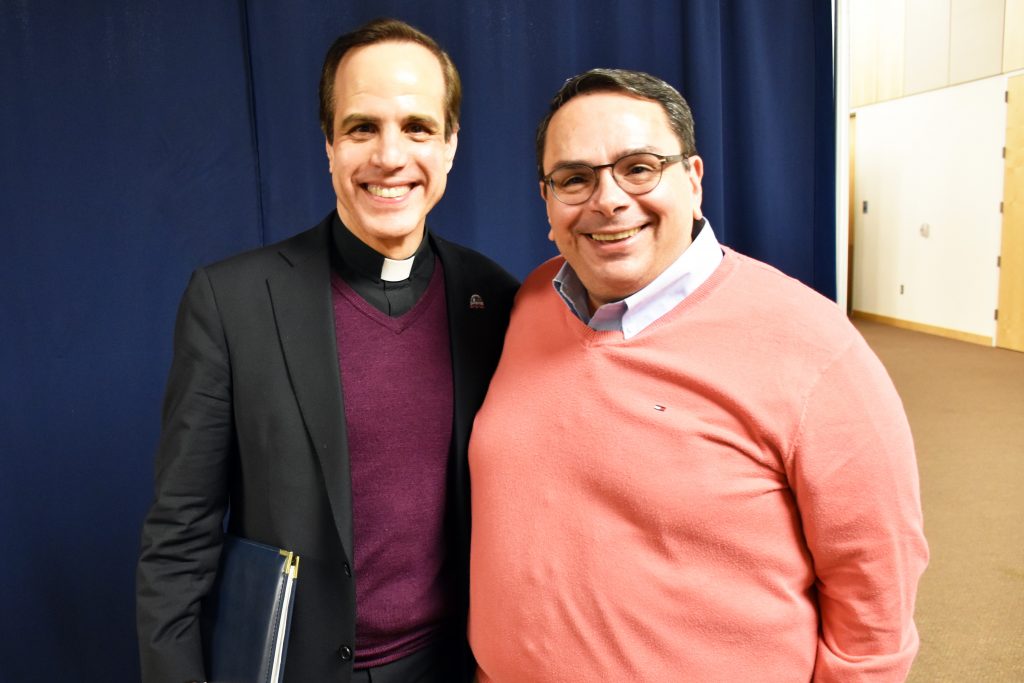
- Fr. Danzi and Fr. Burgaleta
-
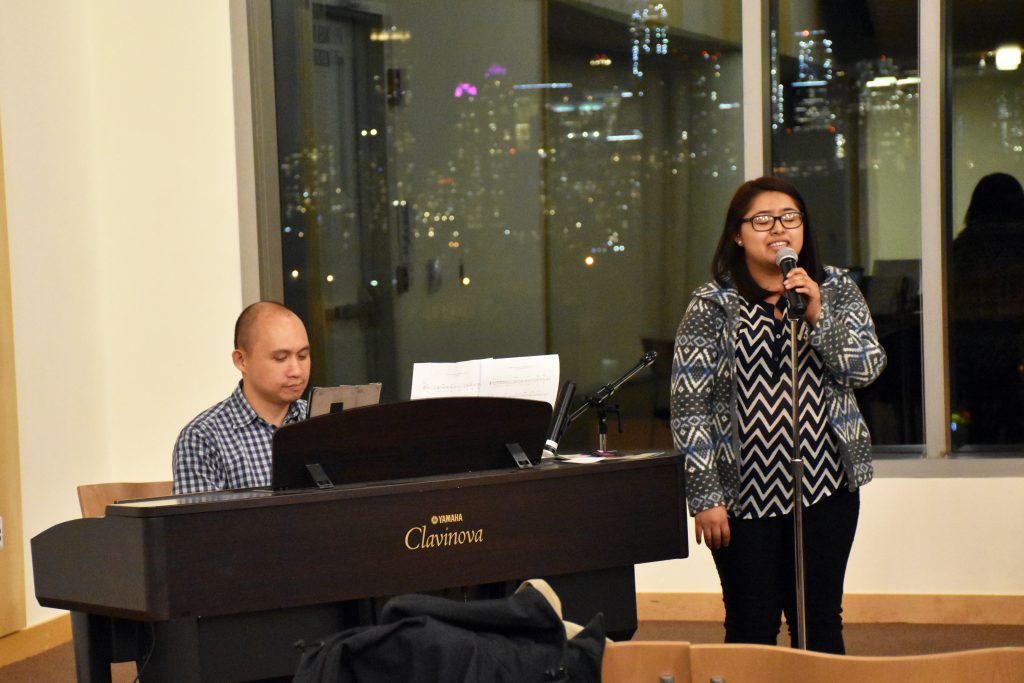
- Paulo Tirol and Aitana Liberos ’18

